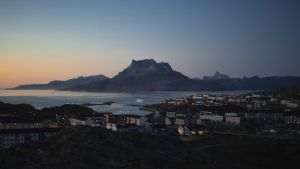Reporter: What other countries, apart from Romania, have signed the agreement in support of the Nabucco pipeline? What is the current status, in terms of the legislative support, in the shareholder countries?
Christian Dolezal: The ratification of the support agreement of the project is only necessary in Romania and Bulgaria. Both countries have completed the ratification process. In the other transit countries - Hungary, Austria and Turkey - the Support Agreements have already come into effect.
The signing of the Support Agreements between Nabucco Gas Pipeline International GmbH and the countries of transit guarantees a stable legal and regulatory framework for the project, which is essential for reducing risks for producers and for investors as well.
Reporter: Which other country is more advanced in terms of setting the route, designing and obtaining the construction permits?
Christian Dolezal: The development of Nabucco is at similar stages in all the transit countries, both when it comes to the legal, regulation and political support, as well as when it comes to obtaining the authorizations. An important aspect, the basic design (Front End Engineering and Design - FEED) is close to completion in all transit countries; the process for evaluating the impact on the environment is at an advanced stage in Romania, has been completed in Hungary and is close to completion in Bulgaria - where 30 public debates have taken place in last month.
Nabucco is the most cost-efficient pipeline, and for the most part we can follow the route of existing pipelines. Also, Nabucco is the most technically advanced solution, with a unified operating and control system, which ensures the highest reliability and safety standards.
The benefits of Nabucco will be equally felt in the entire region. In all the transit countries, the diversification of the gas supply will stimulate economic growth and attracting investments. Aside from the several thousand jobs which will be created in the region, the project will also bring significant economic and social benefits.
Reporter: What are the stages for the implementation of Nabucco until mid-2013 (obtaining funding, the call for tenders for the materials suppliers, the call for tenders for reserving the capacity), and when does the Shah Deniz consortium have to announce the winner of the call for tenders?
Christian Dolezal: Since the signing of the Cooperation, Options for equity participation and Financing with the partners of Shah Deniz on January 18th, Nabucco has cooperated with these partners for the plans for the execution and development of the Nabucco West and Shah Deniz II projects. At the end of this month, we will send to the partners of Shah Deniz a package of Documents for Supporting the Decision, in order to facilitate their decision making process.
We are currently focusing on providing to the partners from Shah Deniz of the most competitive support documentation, on working together with them and with the other parties interested in the Southern Gas Corridor in order to continue developing the chain of value. This will continue to be our main concern until the making of the final decision by the Shah Deniz consortium and beyond. We have also signed a memorandum of understanding with the partner project of the Southern Corridor, TANAP, which allows us to work together for aligning the project schedules and to have shared access to information.
In parallel, the process for the Environmental Impact Assessment (EIA) is very advanced in all countries, because we have already obtained 130 permits over the route of the pipeline.
Reporter: Do you think that Nabucco has a greater chance of obtaining financing if the members of Shah Deniz become its shareholders?
Christian Dolezal: In the case of the pipelines, the process for securing funding takes place when the process is completed and the guarantee of the gas supply is received. In January 2013, Nabucco has signed the agreements for Cooperation, Equity and Financing options with the partners of Shah Deniz. The agreements cover several areas of cooperation, including the granting to the members of the Azerbaijan consortium of some options to acquire a 50% stake in the project, after the selection of the Nabucco Vest pipeline by that consortium, for buying the natural gas from the Shah Deniz deposit.
We are already having talks with the international financial institutions, based on the letters of mandate signed in 2011. The due-diligence process is completed, which means that there will be new negotiations with the creditor institutions after the decision on the selection of the pipeline will be completed.
Reporter: What are the chances of Nabucco accessing more money out of European funds in 2014?
Christian Dolezal: Nabucco will obtain financing just like other major infrastructure projects, by attracting loans and equity contributions of the shareholders. Just like any major, multinational infrastructure project, Nabucco has the ability to secure European funds, but the completion of Nabucco does not depend on attracting EU funding.
Reporter: Could Nabucco suffer delays in its implementation due to the need to synchronize with the TANAP plant?
Christian Dolezal: We have a very close relationship with our partners from TANAP, with which we have recently signed a memorandum of understanding. As partner projects in the Southern Gas Corridor, Nabucco and TANAP have cooperated closely over the last few months. This memorandum of understanding takes the cooperation to the next level, because it allows us to coordinate our project and development schedules in an effective manner, by ensuring the aligning of the entire value chain in order to synchronize it with the one for the delivery of the natural gas producers.
Reporter: Thank you!
















































